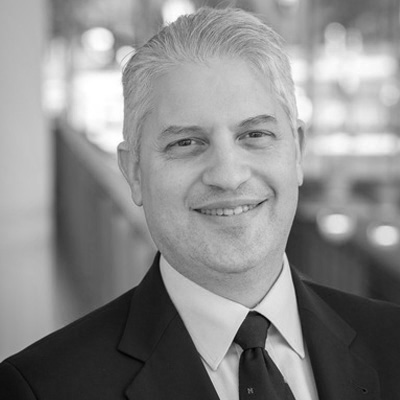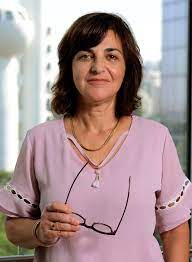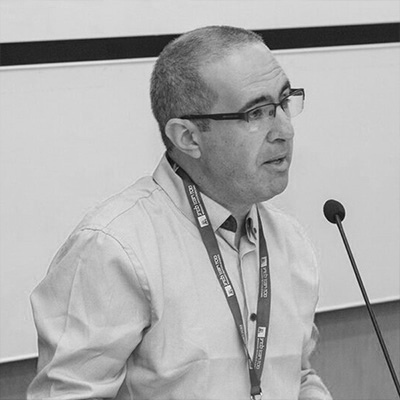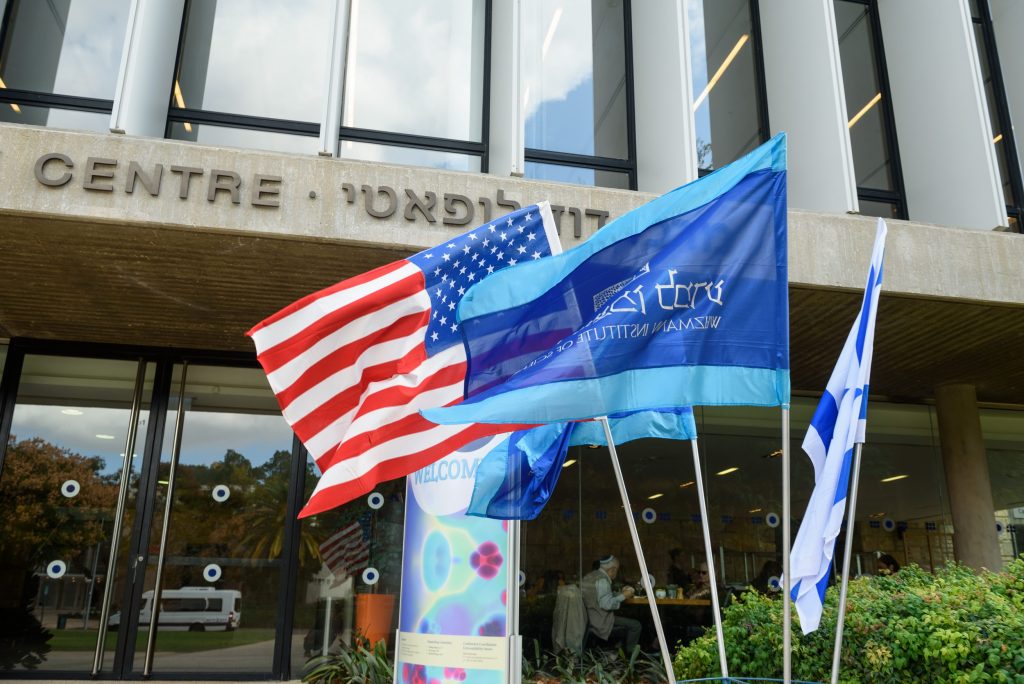
OUR VISION
Consider a future in which robots work alongside humans to search for disaster survivors and seniors monitor their response to bacterial infections in real time. Imagine a U-M scientist working with an Israeli scientist to discover new drugs from the treasure-trove of biodiversity in Israeli ecosystems, ranging from the Negev Desert to the Red Sea, or an engineer skilled in modeling airflow over airplane wings partnering with pediatric heart surgeons to pioneer a better flow valve to be implanted into the heart of a newborn child born with a heart defect.
Colleagues in Michigan and Israel are working together to achieve all of this and more.
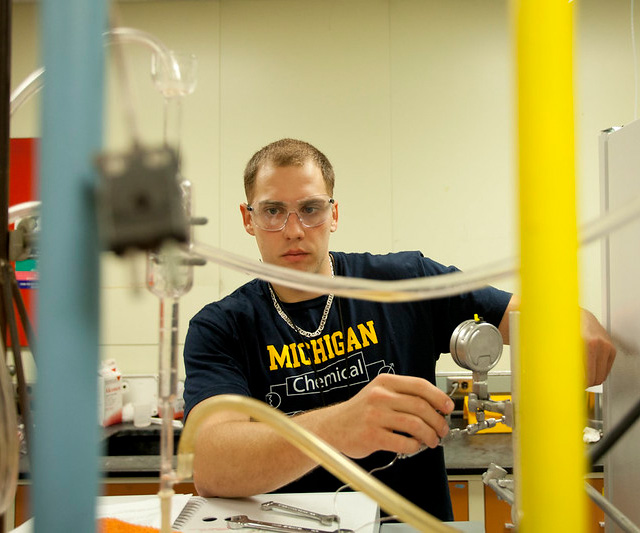
Our mission and structure draw on the history and unique strengths of each partner: the Technion – Israel Institute of Technology, where a cornerstone laid in 1912 now supports a world-class institute of scientific and technical education; the Weizmann Institute of Science, which was founded in 1934 and is today a trailblazing international center of multidisciplinary basic research and teaching; and the University of Michigan, the top public research university in the United States, which has been advancing the public good for 200 years and counting.
Individually, we have advanced some of the most innovative medical and engineering technology in the world. Together, leveraging diverse perspectives and expertise that spans all disciplines, we are more than the sum of our many outstanding parts.
Every project we take on has a faculty leader at Michigan and a faculty leader from either Technion or Weizmann — colleagues who have sought each other out, inspired by what they have learned about each other’s work. We have set up a rigorous scientific review process, and only the most promising projects are selected to move forward. As equal partners, we divide the funding for grants equally among the institutions participating in each effort.
Building on a strong foundation of success — evidenced by the continued swell of new collaborations, grant submissions, and highly attended annual symposiums — we seek to ensure the future of our partnership, creating a sustainable structure that is scalable and adaptable. As our efforts are fully funded by philanthropy, we have set a $300 million goal to:
- Launch transformative megaprojects to take on our greatest challenges and opportunities.
- Redouble the impact of juried collaborative research grants.
- Fuel educational exchanges at the heart of collaboration, including annual symposiums and fellowships.
Join us as we promote scientific interchange, invest in bi-national collaboration, recognize and honor partnerships between American and Israeli scientists, and enable bonds of friendship and understanding. Together, we can celebrate our cultures and honor our shared desire to make the world better for all.
Celebrating a Legacy of Impact: The GB Foundation
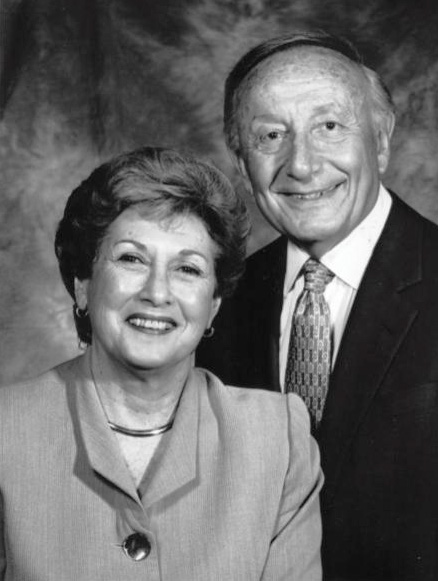
HISTORY OF THE PARTNERSHIP
Israel’s Weizmann Institute of Science, which also had been pursuing philanthropically funded research projects with U-M through the Life Sciences Institute, joined the partnership in 2013. With a co-equal structure established among the three institutions, our mission expanded to include broad-based biomedical research, including for cancer and childhood diseases. We also sought to enable trainees and faculty to study and work at the partner institutions. As our initiative gained momentum and prestige, the compelling scientific benefits and future potential of the partnership became clear — including to a growing number of supporters.
Through ongoing generosity, we were able to increase the number and amount of research grants and educational exchanges. More than 100 people attended our third symposium and gala dinner in 2013 in Ann Arbor. They included representatives of the Michigan Israel Business Bridge and the governor of Michigan, who gave a keynote address. Mr. Kahn had died in 2012, but his dream had captured the imagination of leaders in Michigan and Israel.
Meeting for the first time at the Weizmann Institute in 2015, we began to identify even greater opportunities for our institutions. The success of our early research projects began to translate into external funding from the United States’ National Institutes of Health and the U.S.-Israel Binational Sciences Foundation. And in 2018, the D. Dan and Betty Kahn Foundation announced it would launch two megaprojects in robotics and precision medicine. Funded with a $20 million gift to celebrate and advance Mr. Kahn’s vision, these efforts are engaging the world’s top innovators in pioneering efforts to improve quality of life for all.
As we enter our second decade, the Michigan – Israel Partnership for Research and Education is uniting our three partner institutions in one goal: advancing the health and well-being of mankind.
LEADERSHIP
David J. Pinsky, M.D.
David J. Pinsky, M.D., the U-M director of the Michigan-Israel Partnership, is a director of the Samuel and Jean Frankel Cardiovascular Center, the J. Griswold Ruth M.D. and Margery Hopkins Ruth Professor of Internal Medicine, and professor of molecular and integrative physiology at the University of Michigan.
Rivka Dikstein, Ph.D.
Rivka Dikstein, Ph.D., the WIS director of the Michigan-Israel Partnership, is the Dean of the Faculty of Biochemistry and the incumbent of the Ruth and Leonard Simon Professorial Chair of Cancer Research. She investigates one the most basic topics in biology—how genes are activated in order to produce proteins.
Peleg Hasson, Ph.D.
Peleg Hasson, Ph.D., the IIT director of the Michigan-Israel Partnership, is associate professor in the Department of Genetics and Developmental Biology and head of the tissue development laboratory at the Ruth and Bruce Rappaport Faculty of Medicine at Technion-Israel Institute of Technology.

